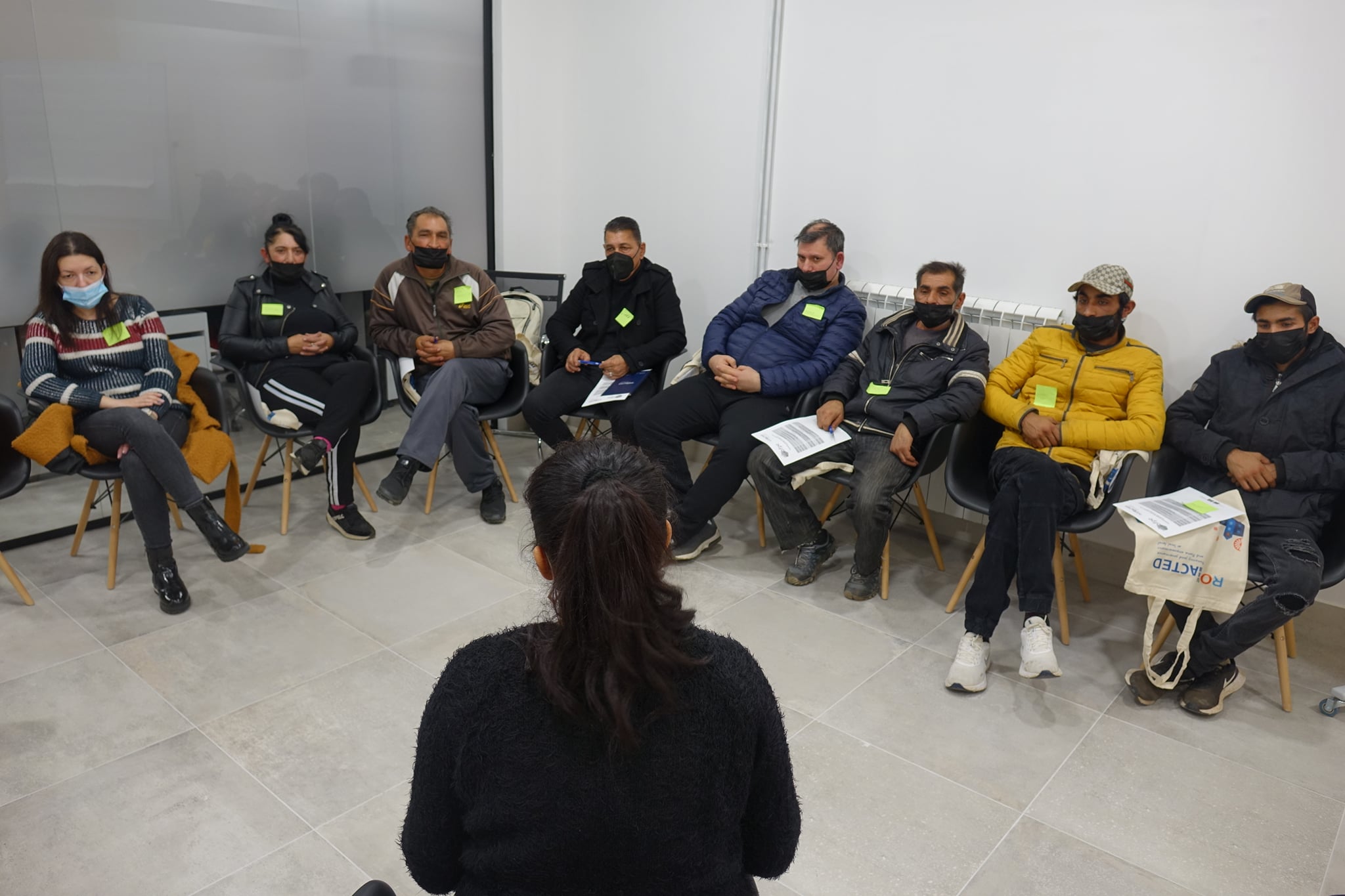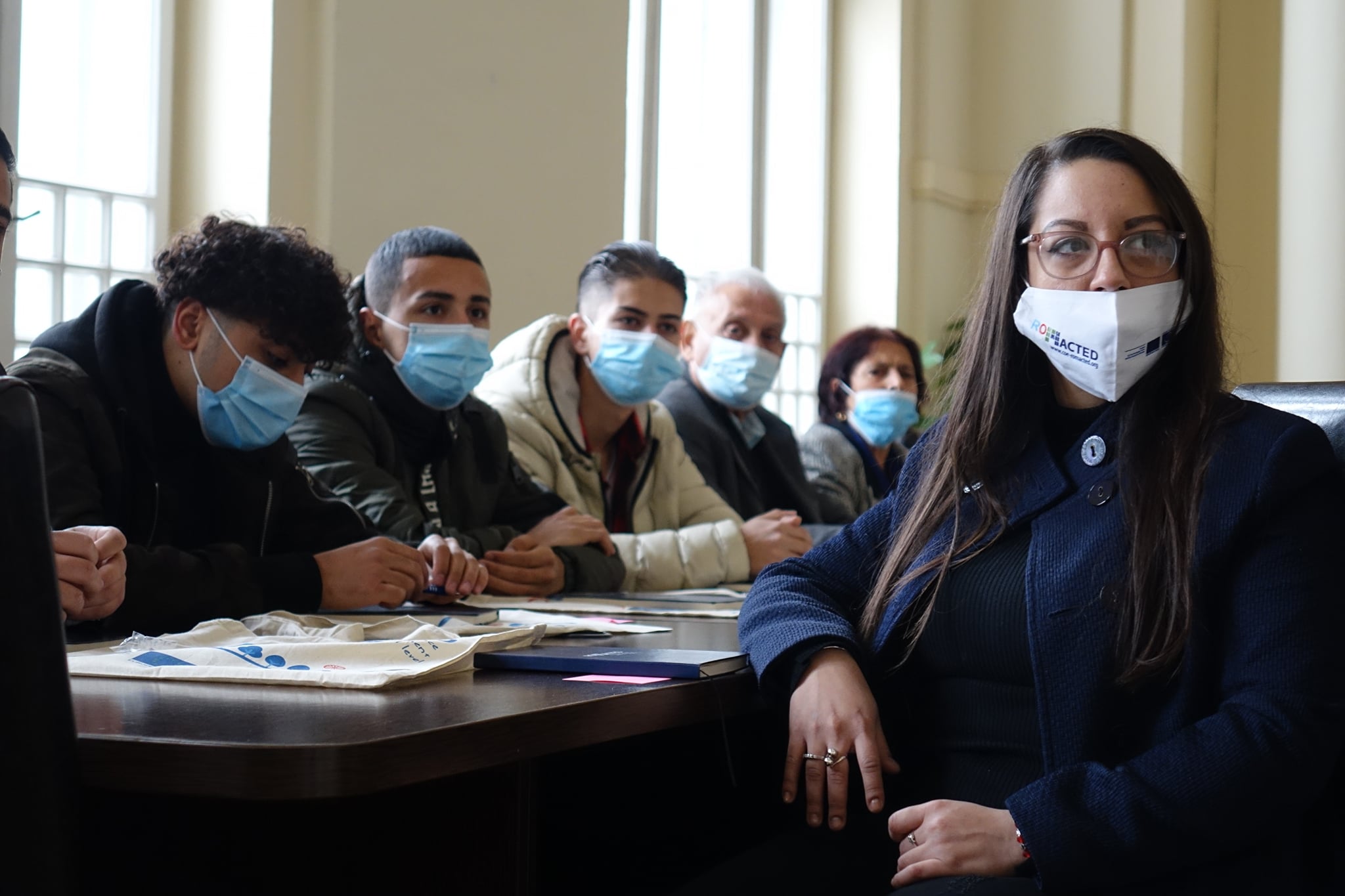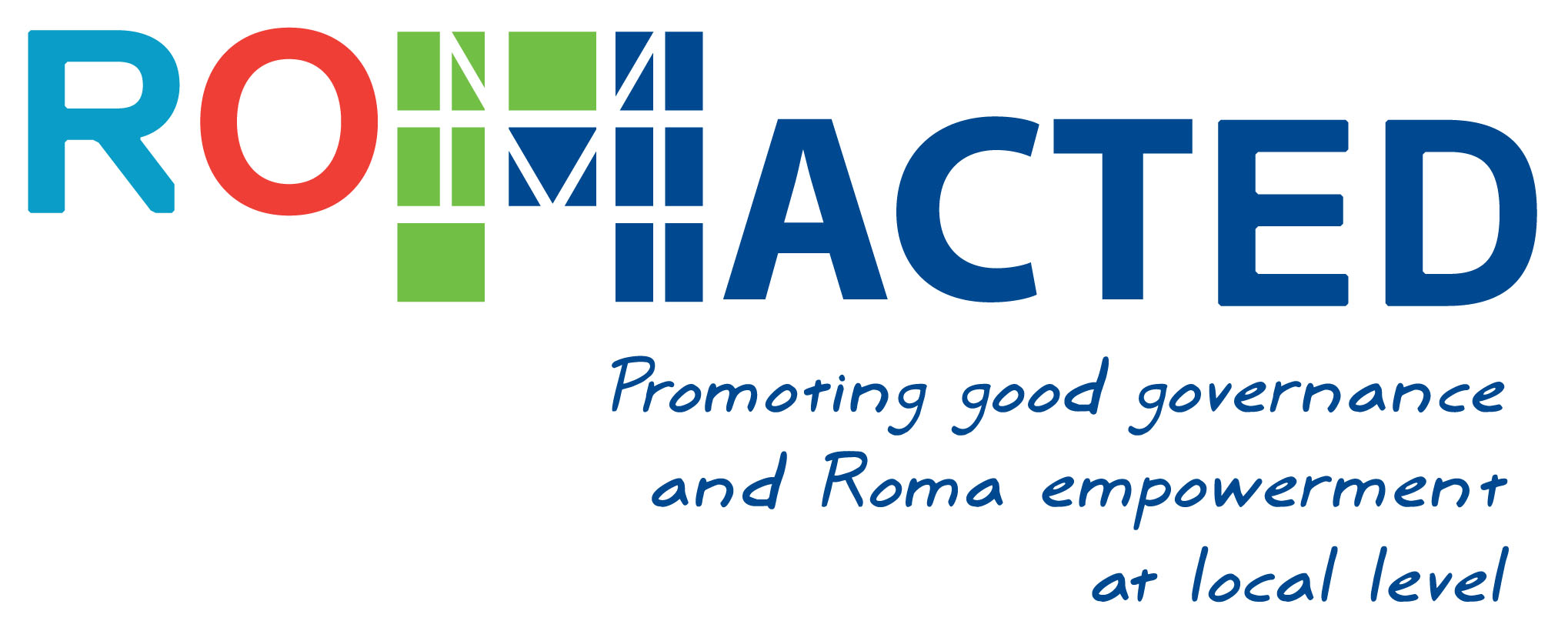In the period from November 2021 to September 2022 in Serbia, the focus of the second phase of the joint Programme of the Council of Europe and the European Union ROMACTED was aimed at activities for building local structures (Community Action Groups (CAGs), Institutional Working Groups and Municipal Taskforce Groups) and to initiate cooperation between local authorities and community members in 14 cities and municipalities in Serbia: Aleksinac, Apatin, Bač, Kostolac, Kragujevac, Kruševac, Lebane, Niš, Pirot, Prokuplje, Subotica, Vrnjačka Banja, Zaječar and Zvezdara.
In the mentioned period, 39 Community Action Groups were established with 309 members of the Roma community, of which 152 are women, as well as 14 Institutional Working Groups. Out of 199 members in 14 Institutional Working Groups, 104 are women. Municipal Taskforce Groups with a total of 160 members were established in all local self-governments. Of the total number, 62 are representatives of the Roma community (of which 29 are women), while local institutions are represented by 60 women and 37 men.
Joint Action Plans of the Roma community and representatives of relevant institutions in the Municipal Taskforce Group were adopted in 12 partner local self-governments - in Aleksinac, Bac, Kostolac, Kragujevac, Kruševac, Lebane, Niš, Pirot, Prokuplje, Vrnjačka Banja, Zaječar and Zvezdara.
So far, 30 meetings of Municipal Taskforce Groups and 72 meetings of Community Action Groups have been held.
On the occasion of the International Roma Day, on April 8, in 8 partner municipalities and cities, Roma flags were placed on the municipal/city administration building. The International Roma Genocide Remembrance Day was marked on August 2 by laying wreaths near the "Crystal Flower" monument in Šumarice in Kragujevac.
In the previous year, the facilitators successfully carried out almost 300 local interventions.
CAPACITY BUILDING
One of the important parts of the Programme is capacity building, both of members of the Roma community, and of representatives of local administrations. For this purpose, workshops were organised for members of the Roma community on the topic of participatory strategic local planning and the fight against narratives of hate speech and antigypsyism. On the other hand, a workshop was also organised for representatives of local administrations on the topic of participatory strategic local planning, as well as Roma Responsive Budgeting at the local level.
In Subotica and Apatin, workshops were held with members of the Roma community on the role of civil society organisations, civic activism and human rights. 22 people from the Roma community attended the workshops. A workshop on public advocacy and lobbying was organised in Kruševac with over 20 members of Community Action Groups and members of the Roma community.
In Lebane, a large number of Roma men and women were informed about public works, and 8 men and 2 women were engaged through public works. Training for managing the project cycle was also organised. In Bač, the municipality, in cooperation with GIZ, organised trainings on writing a business plan, in which over 40 Roma participated.
Meetings and workshops on the importance of the population census were held in a large number of municipalities. In Kruševac, one member of CAG is engaged as census-taker, while in Kostolac, two persons from LAG are engaged as assistant census-takers, while two more persons are census-takers, and in Vrnjačka Banja, a member of CAG is an assistant census-taker. In Niš, three workshops dedicated to the population census were organised, while one member of the Roma community was engaged as an instructor of census-takers. A workshop on the population census was organised in Lebane, attended by 29 members of the Roma community.

ROMA RETURNEES
In three partner local self-governments (Kostolac, Kruševac and Lebane), Community Action Groups were established, in which members are exclusively Roma returnees. Returnees actively participated in the meetings of the Municipal Taskforce Groups, in the creation of a Joint Action Plan, where they focused on the issues of legalisation of residential buildings and solving sanitary problems in settlements and problems with electricity, employment of Roma returnees and provision of firewood.
COVID-19 AND HEALTHCARE
A new component of the Programme in the second phase is the fight against COVID-19, bearing in mind the fact that the Roma community is the most vulnerable group when it comes to the fight against COVID-19, in accordance with a large percentage of households without basic sanitary installations and the ability to maintain regular hygiene. The percentage of vaccination in the Roma community is at a low level due to a low level of information, which is why an info session on COVID-19 and the importance of vaccination was held in Kragujevac and Bač in early 2022 with over 30 community members present in both local self-governments.
In addition to the info session, a discussion was held in Bač on the same day about preventive health measures and the necessity of regular medical examinations, as well as early pregnancies, where a third of the total number of attendees were children. In Prokuplje, an informative session on reproductive health was held with 25 participants, and in Aleksinac, a workshop on the same topic was organised in cooperation with the Red Cross, attended by 24 people.
INFRASTRUCTURE AND QUALITY OF LIVING CONDITIONS
When it comes to infrastructure, the streets in Apatin are paved in the Sonta settlement, where most of the Roma population lives. In Kragujevac, the repair of street lighting, the construction of a fence on the bridge, and the distribution of trash cans were made possible on the ground. The problem of garbage disposal is also expressed in Prokuplje, which was partially remedied by placing containers in the settlements.
In Niš, work on the ground made it possible to provide street lighting and replace light bulbs in the neighbourhood of Beograd Mahala, and firewood was also provided. In the same municipality, in the settlement of Pantelej, Zlatiborska Street was paved and lit, but the problem with the blockage of the sewage system in the settlement was also solved on 12 February.
In Kostolac, the construction of the sewage network was successfully completed in three settlements: Didino selo, Kolište and Kanal, and the construction of children's playgrounds began in two Roma settlements. Also, in the same municipality, pipes for independent connection to the sewage network were provided for 300 households, while 12 people received construction materials for house adaptation and concrete poles for lighting the settlement were provided.
In Pirot, speed bumps were placed in the Roma settlement, while in Aleksinac, work began on the subdivision and re-parcellation of the Vase Nikolić settlement.
EDUCATION AND EMPLOYMENT
When it comes to education, textbooks were distributed to children in pre-school institutions and primary schools, while in terms of encouraging employment, retraining was initiated for members of the Roma community in Aleksinac. In Aleksinac, a training for Roma "Together towards salary" was organised as well as a workshop on women's entrepreneurship. In the same municipality, members of the Community Action Group held a workshop for children on motivation for continuing education from the perspective of successful students from the Roma community, which was attended by over 40 children.
In Pirot, school supplies are provided for students from the first to the eighth grade. In Kruševac, a total of 100 snacks were distributed to Roma students, while 30 Roma received certificates for employment as manicurists, pedicurists, and hairdressers. In Vrnjačka Banja, vouchers for the purchase of groceries were distributed, twice for 5000 thousand dinars, and then 130 vouchers worth 4000 thousand for all Roma families.
An info session was held in Kragujevac attended by 15 children from the Roma community, where they were given more information about affirmative support measures for further education. Also, on August 12, the International Youth Day was marked, and the importance of the voice of the youth in the city of Kragujevac was highlighted, as well as the opportunity for young Roma men and women to express their needs.
In Niš, 47 scholarships were awarded to children from the Roma community who attend high school, while four scholarships were awarded to students, and work was started on the employment of members of the Roma community, where 40 people received retraining. Training for employment and self-employment was organised in Prokuplje.
In cooperation with the Red Cross, clothes and shoes for children were provided in Bač, as well as food packages and four devices for measuring level of blood sugar, while in Niš, Aleksinac and Zaječar, New Year's packages were distributed to children from the Roma community.
MOST ROMA FRIENDLY MAYOR
During the Roma Week in the European Parliament in Brussels, the president of the city municipality of Zvezdara, Vladan Jeremić, received the "Most Roma Friendly Mayor" award for 2022. Zlatko Petrin, the contact point for the ROMACTED programme in front of the city municipality of Zvezdara, received the award on his behalf.


